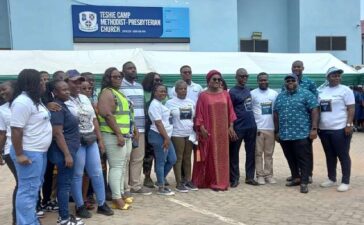In continuation of it’s quest for a hitch-free FIFA World Cup devoid of controversies, the Qatari government has intensified efforts at meeting every set rule in the books as it affects international labour laws and practices.
Having come under persistent and sometimes acrimonious criticisms from western media and governments, officials of the Committee for Delivery and Legacy, as the committee in charge with the organisation of the World Cup is called, have collaborated with the International Labour Organisation and various human rights groups in bringing about positive changes in the country’s labour ecosystem.
The ILO has issued new reports detailing the results of the Technical Cooperation Programme between the Government of Qatar and the ILO since it was launched in April 2018.
The annual and four-year progress reports cover the substantial efforts that have been made in the areas of labour migration governance, the enforcement of the labour law and access to justice, and strengthening the voice of workers and social dialogue.
The ILO and the Government of Qatar reviewed progress made on labour reforms under their joint programme and agreed to continue working together to build a modern and dynamic labour market in the country.
“These changes have already improved the working and living conditions for hundreds of thousands of workers, though additional efforts are needed to ensure that all workers can benefit.”
A recent report by the ILO-Qatar Technical Cooperation Programme states that ILO Director-General, Gilbert F. Houngbo, and Minister of Labour of the State of Qatar, Ali bin Samikh Al Marri, met during the 346th Session of the ILO’s Governing Body in Geneva.
Director-General Houngbo and Minister Al Marri, accompanied by delegations from both sides, reviewed progress made during the four years of the ongoing Technical Cooperation Programme between the ILO and the State of Qatar.
Both parties were satisfied with progress recorded so far and agreed to continue working together on areas of labour reform, including occupational safety and health, intensifying efforts to combat forced labour and human trafficking, and supporting companies to revise their policies and procedures in line with the new legislation.
Evidently happy with the progress made by the Qatari government, ILO Director-General Houngbo said, “Recent labour reforms by the State of Qatar have brought positive results,” adding, “I thank Minister Al Marri for their commitment to pursue these reforms and their implementation, in line with Qatar’s vision 2030.”
He promised the continuous cooperation of the ILO with the government of Qatar.
Minister Al Marri reaffirmed the Qatari government’s commitment to the implementation of the new law and to continue with the reforms with the aim to making life more meaningful for the millions of workers in the gulf state of Qatar.
The story of the ILO’s involvement in the labour reforms goes back to 2014, when international trade unions submitted a complaint at the ILO against the State of Qatar, regarding noncompliance with core international labour standards. At the heart of this complaint were allegations that the ‘kafala’ or sponsorship system was enabling exploitation and even forced labour, and that the regulatory structures in the country were not adequately detecting or resolving labour rights violations.
Qatar became the first country in the Gulf region to adopt a non-discriminatory minimum wage that applies to all workers, of all nationalities, in all sectors, including domestic work. A total of 13 per cent of the workforce – 280,000 people – saw their wages rise to the new minimum threshold since the new legislation was introduced.
Furthermore, workers in Qatar previously required permission from their employers to change jobs and to leave the country. These constituted the most problematic elements of the kafala sponsorship system that made workers overly dependent on their employers, creating opportunities for exploitation and forced labour. This has been abolished and immigrant workers can now change jobs without seeking approval from their employers nor seek their ‘masters’ permission to leave the country. It is a new breath of air that depicts freedom and unfettered liberty. Workers in Qatar can now dream big without fear of discriminatory laws or undue institutional restrictions. Such is the kind of environment workers now enjoy in Doha and the rest of the country. And as the 2022 World Cup begins later this month, FIFA President, Gianni Ifantino, apparently worried about the recent criticisms, pleaded last week that the focus on Qatar should change to the game. “The game should take the centre stage,” he said.
And as all men of goodwill heed to his call it is also expected that Qatar should focus on putting finishing touches to the spectacle they plan to wow the world with than recourse to the past which should remain in the past as the 2022 World Cup beckons.
Source: GNA














